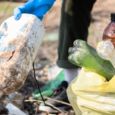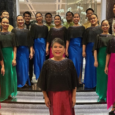Save the Children Philippines has aired concern on the online behavior of digital users posting photos of young girls, including babies, that may put children in danger of online sexual abuse and exploitation through the #
“We call on parents and guardians to be at the forefront of fulfilling the right of children to be protected from online sexual abuse and exploitation by using social media responsibly and teaching children the proper and safe use of the internet,” said Atty. Alberto Muyot, Chief Executive Officer of Save the Children Philippines.
“Even if the images posted are not sexual in nature and content, there is still a risk that these can be used by online predators for untoward purposes,” said Muyot.
The Philippines is currently the global epicenter of online sexual abuse and exploitation based on the thousands of sexual images of Filipino children found proliferating in digital platforms being used by sexual predators.
In 2017, the Office of Cybercrime of the country’s Department of Justice (DOJ) received 45,645 tip-offs about sexual images of Filipino children from the US-based National Center for Missing and Exploited Children (NCMEC).
The NCMEC requires internet service providers (ISPs) and electronic service providers (ESPs) in the US to submit reports of child abuse. The number has since then ballooned to 600,000 last year.
Wilma Banaga, Child Protection Advisor of Save the Children Philippines, said that it is important for parents and guardians to be careful about posting images of their children online because we cannot control how such images can be used by others.
“It is advisable that parents respectfully monitor their children’s online activities and to be good role models in using the internet and social media,” said Banaga.
“The long period of quarantine provides parents and guardians more time to educate their children on how they can protect themselves online, which also means that they should also be knowledgeable on the safe use of the internet and social media,” Banaga added.
Save the Children Philippines is part of the consortium implementing the SaferKidsPH program together with the Asia Foundation and the United Nations Children’s Fund (UNICEF). SaferKidsPH, an Australian Government initiative, is working towards reducing online sexual abuse and exploitation (OSAEC) of children in the Philippines.
SaferKidsPH has lined up recommendations for parents, guardians, and concerned agencies, as well as children and youth, to ensure safety in using the internet. These include never sharing of personal details or sending/ posting sensitive information such as photos, phone number, credit card details, home address, and location of school to anyone met online or at any social networking site.
In addition, by never meeting anyone you first or just “met” online. Parents or guardians must be informed right away as some people may not be who they say they are on social media.
“While we are proud of our children and would love to share beautiful pictures of them, let us be more cautious in joining online challenges that may jeopardize their welfare,” said Muyot.
“It would also help if we increase the safety and privacy setting of our social media accounts, as well as of our children’s, and build a safe digital platform for children where they can learn, have fun and socialize with real friends, neighbors, and family during the lockdown,” he added.




